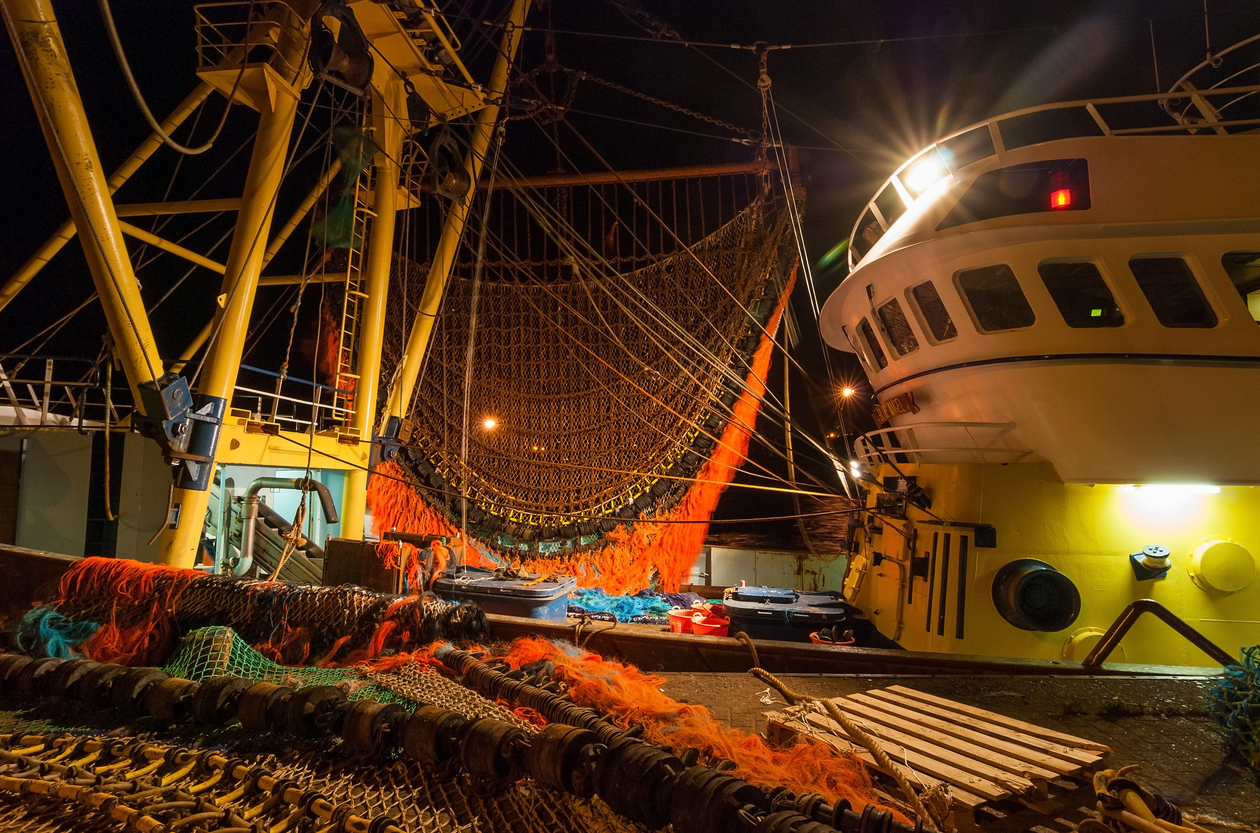The impact of Brexit on Scotland’s fisheries is still a matter of intense debate.
The UK government has agreed to a transition period in which the UK will be part of the Common Fisheries Policy (CFP), with quotas likely to remain in place until 2021.

Scottish Ukip MEP David Coburn criticised the transition period in a video on his Facebook page, arguing that it would compromise British efforts to assert control over its waters.
Ferret Fact Service found this to be Mostly False.
Evidence
Opposition to the CFP made up a significant part of the campaign to leave the European Union. Leading Brexit supporters, including environment secretary Michael Gove, argued that the policy had “devastated the fishing industry” particularly in north east Scotland.
The CFP is a set of regulations which aim to avoid overfishing and to ensure the profitability and sustainability of fishing industries by striking a balance between fish reproduction and how much fish is caught. It does so by agreeing quotas of fish that each EU nation is allowed to catch.
It is is based on a principle of equal access, meaning EU-registered vessels can access almost any part of EU waters.
The quota for each EU member is primarily based on the amount of fishing they did in the area prior to the adoption of CFP, and is set with reference to the Total Allowable Catch (TAC) recommendation. This is a scientific calculation aimed at maintaining sustainable fishing.
The Brexit transition period will mean that the UK will practically continue its membership of the CFP until 2021, but without the ability to directly influence its rules.
Common Fisheries Policy has not ‘devastated’ North-East fishing industry
David Coburn’s claim that the transition period hands EU vessels the right to fish in future is based on the United Nations Convention on the Law of the Sea (UNCLOS). In the video, he claims: “The UN convention on the law of the sea states that you can either use your territory or lose it.
“This law came in after we joined the EU in 1973, so if we allow the European fleets to use our waters during the transition period, that means they will have the right to use it thereafter.”
The UNCLOS came into force in 1994, and set out the concept of exclusive economic zones (EEZs).
These are areas which stretch up to 200 nautical miles from a country’s coastline. Within its EEZ, a country has the right to use marine resources, and over energy production such as from from water and wind.
Re-asserting control over the UK’s EEZ was a major part of the Leave campaign.
The UN law also put into place guidelines for co-operation between coastal states who share seas and fishing stocks.
This is described as an “obligation to co-operate on their management”.
As Coburn states, UNCLOS Article 62 says that a coastal country is advised to give other states access to the “surplus of the allowable catch”. However, this only applies when the country does not have the capacity to “harvest the entire allowable catch” itself.
This does not amount to a situation where a country must use its territory “or lose it”.
International law academic Professor Robin Churchill told the House of Lords European Union Committee that the law gives coastal states discretion as to which states it admits into its EEZ.
In exercising this discretion, the coastal state would “take into account all relevant factors, including . . . the need to minimise economic dislocation in states whose nationals have habitually fished in the zone or which have made substantial efforts in research and identification of stocks.”
EU member states have fished and researched habitually in the UK EEZ long before the transition agreement.
Churchill confirmed to Ferret Fact Service that there is “no requirement that such habitual fishing must postdate the entry into force of the UN Convention”, as claimed by Coburn.
There is nothing in the UNCLOS which suggests that if EU boats have access to British waters during the transition then they will therefore be allowed access afterwards.
There is strong political will from the EU to allow European boats to fish in the UK EEZ post-Brexit, and UNCLOS states that the UK must cooperate with other coastal nations over shared stocks.
Some observers have noted that the UK’s concession might make it more difficult to resist calls for continued access once the transition period ends.
However, the UNCLOS does not mean that EU boats will have the right to fish in UK seas in future.
Ferret Fact Service verdict: Mostly False
Coburn’s claim that the transition deal will allow EU boats to fish our waters in future is not accurate. International law does state that if a coastal state cannot fish its entire allowable catch it is obliged to allow other nations to use the surplus. However, this is not impacted by EU boats fishing in UK waters during the transition period.















